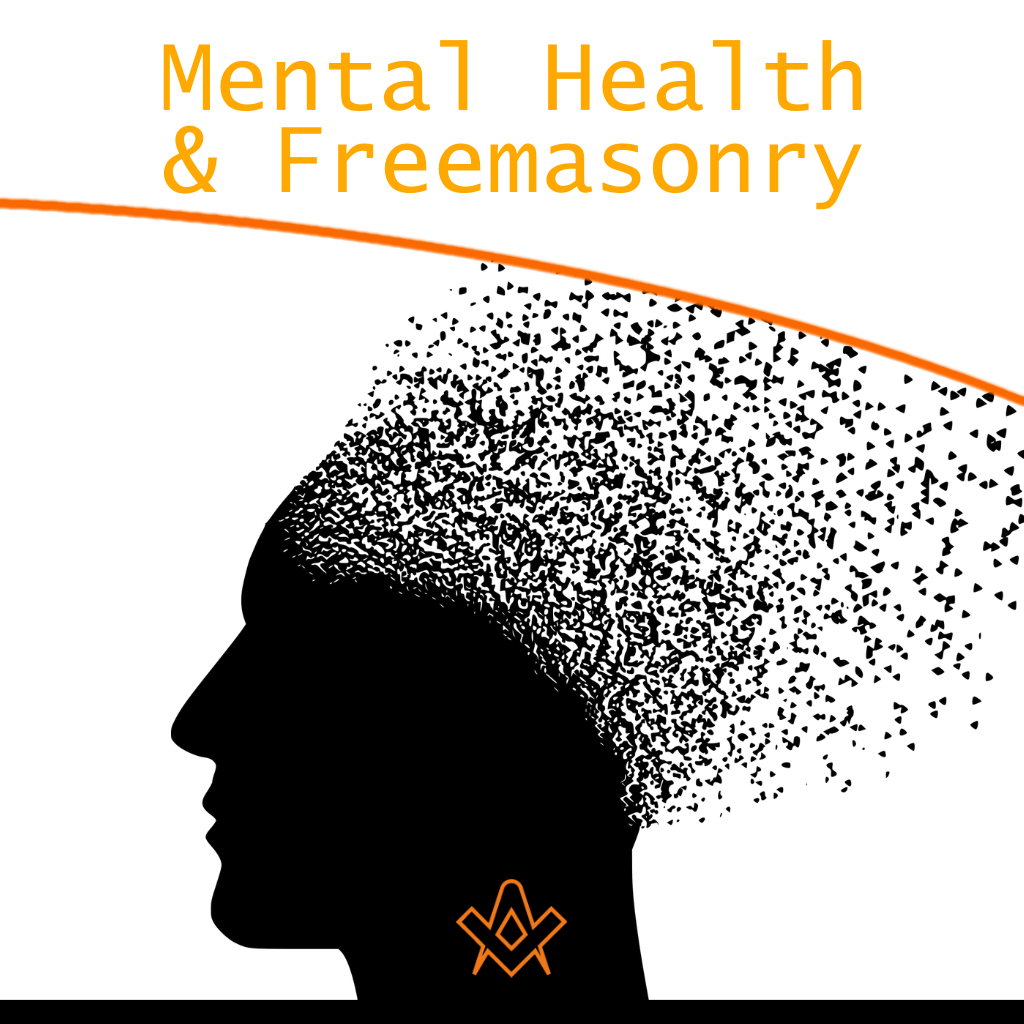I have been asked by the Provincial Grand Almoner of Essex ( UGLE) to produce this paper expressing my keen enthusiasm to present the idea of mental health awareness and develop what we can do as a collective to help those who are at risk, are affected or have dependants who are affected by mental health issues.
My name is Adam Mills and I am a 21-year-old Freemason currently residing in Essex, England. I have been concerned about the growing numbers of mental health related issues over recent years due to the attention that has been paid on a national scale in the news, on social media and in political circles.
Although it has been frequently highlighted it has yet to make a memorable impression on everyone that it concerns, and I feel that something needs to be done about this. Being a Freemason for almost two years has showed me the meaning of charity as well as the importance of helping out one another and their families.
This has encouraged me to look into the issue of mental health further as well as to where we as a fraternity can begin to approach this subject. I have seen first-hand the impact that mental health issues have on people with close family members and friends suffering from anxiety due to events that have happened in their lives.
The Masonic Charity Foundation (MCF) do have a project which includes the awareness of mental health but that does not mean we are not able to make a larger impact on a more local scale.
I first began to think about what can be done to help with mental health issues within the walls of Freemasonry and how we can make a progressive course towards the future of Freemasonry when I was talking amongst my fellow brethren about older members of many years, no longer attending due to their mental health letting them down.
This made me realise that this is something that is rarely mentioned or discussed in a Lodge meeting or Lodge of Instruction where the members feel like they can approach their fellow members and seek sanctuary or help with their issues. Hence, me feeling the need to make a change in Essex and hopefully see it spread throughout Freemasonry that we can be one of the starting blocks for mental health awareness progressing.

it’s important that the idea of mental health is seen as an important topic for Freemasons
What would I like to achieve?
My focus of what I want to achieve from this report and discussing it with the Provincial Grand Almoners, is to raise awareness of mental health. It’s important that the idea of mental health is seen as an important topic for Freemasons and its contributors to focus on as means for it to be able to be recognised and worked with in order to assist with making a more effective approach.
Equally I would love to achieve, with help, the removal of the stigma around mental health and the idea that men are not allowed to discuss their feelings out loud and to others. This is one of the more important issues to consider achieving, as we have a substantial number of members who we could work with in order to help those who want to make the voicing of emotions a much more normalised and talked about idea.
Mental health issues can come in many forms, each of them just as important – some those may not consider as mental health illnesses are anxiety, alcohol or drug abuse and post-traumatic stress disorder.
How does mental health relate to our members?
Mental health issues affect approximately 1 in 4 people (Mind.org). With 200,000 Freemasons in England (UGLE.org.uk) ranging all ages, shows us that a potential 50,000 members are at risk or currently affected.
In the UK there are approximately 6000 suicides annually, with 75% of these being male suicides – it is the biggest killer of men up to age 49 (BBC.co.uk). This statistic is just one of a few which enable us to see the level of necessity for providing support for our members and those in need, so that we can assist in the reduction of those numbers by making a difference with our efforts.
Being a majority male-based organisation, it is important that we lead the way with mental health awareness and destroy the idea that a man is not supposed to show weakness. This is important as for many years, the idea that men should not break down their walls has been normalised.
![]()
encourage more and more men to want to talk about their feelings
Members should be able to see Freemasonry, and the fraternity it includes, as a safe place to come and be able to be open with people – examples such as the almoner being available for them to talk to, will encourage more and more men to want to talk about their feelings instead of keeping it to themselves to fester and possibly create negative mental health.
This is especially important in the currently climate of the health service, where people may want to express their issues and situations in a less sterile environment than they would otherwise be accustomed to, and also due to the strain on the health service members may not be able to get the support they need through traditional avenues and will need support from their brethren.
In addition to this, it is important to also be able to support those members who may not themselves be suffering from mental health issues but need to be able to talk to their brethren about the strain that may be developing on their mental health due to family members withdrawing from them and becoming distant.
Ways in which we can help
Use of Lodge Almoners: Lodge Almoners are a great asset to a lodge with their long-standing job of caring for members present and past, and their families. It is a consideration that as well as all their duties that mental health training would be encouraged to be able to notice issues and help if situations arise. They are important in the structure of any Lodge; so it would be important that they are given the appropriate support they will require in order to help them fulfil their job requirements if they were to take on the assistance of those with mental health problems.
Recognising possible mental health struggles
It is well known that people who are suffering with mental health conditions may appear distant and withdrawn from groups and social gatherings. In this aspect it is important, that with the appropriate training, it is possible for Almoners and other trusted members of the lodge to monitor attendance from members who are usually regular and keen.
![]()
appropriate education on matters involving mental health will make it easier to recognise
However, it is also common for those who are considering harming themselves to appear overly positive and level-headed, usually after some time of being withdrawn. Unfortunately, this is not always made obvious by members but it is something that is worth noting that with appropriate education on matters involving mental health it will make it easier to recognise if someone is representing these actions.
The following questions may need to be asked if worried about absence and a possible attachment to mental health struggles: is it a long term member that is no longer attending and does not give a valid reason? Is a member frequently missing due to illness? Are we aware of a traumatic experience in their life? Is one of their loved ones going through a hard time? Have their circumstances recently changed?
Helping our fellow Brethren
A few examples of assistance that any member of a lodge can offer according to the Mind charity website, which I feel could be transferable, would be actions such as: providing emotional support, something as little as a general conversation about their daily life can help them open up about any difficulties they may need some advice or help with. If something like this experience does occur then it is important for privacy and discretion but it is just as important that any issues that may cause them to be at risk are responded to sensitively.
Examples of how the NHS and private sector offer help, and what we can do for limited expense or for free
In recent years, the NHS and private health care have made measures in order to help people suffering from mental health issues. The arrangements they have made, and methods they use, in order to help people are available at limited expense, or free.
Things that we may be able to use or alter for our needs are:
Despite being one of the more expensive options, private charities do offer counselling services. These would be the more expensive due to the necessary need to hire a specialist who would be able to gather the information considering someone’s mental health issues before working on ways to help them return to normal life.
Being one of the more expensive methods, it would also be a lot more effective due to the professional level they are subject to. That in mind, this is an example of something which can be considered as a way of allowing brethren, or those close to them, to seek help by recommendation of counselling services with support.
Peer support groups, the NHS and private charities have set up peer support groups throughout the UK, where those who are confident enough to attend them can talk about what they are going through with those in a similar situation. This is a good method for those suffering from all types of mental health issues to discuss and hopefully ease their condition and help to reduce their feelings of loneliness. This is a cheap and practical idea because as Freemasons, we have no problems finding venues with plenty of space available.
Black Dog Campaign
The removal of the stigma surrounding mental illness, its research and its support. An example of the kind of project that can be run within the organisation. Starting a similar campaign to this but focusing it on all members who are wanting to help, or who are suffering with mental health problems, could potentially be a worthwhile venture. A large portion of Freemasons in England can take the idea out into the wider world and help to educate those on mental health in their workplaces and other social events where they are able to raise the need to talk about their feelings and emotions instead of keeping it all inside their head, which can lead to future implications.
The Samaritans
A helpdesk / call centre for those in need. Supporting fellow charities which fulfil a job like this can be a way for brethren to reach out to those who they do not know if they feel they are uncomfortable talking with friends. This is just one example of how we can help other charities in order to reach the same aim regarding mental health and helping to reduce the effect it can have on people in this modern world.
![]()
mental health is not a new thing it can affect anyone of any age
Conclusion
Mental health awareness is an important topic in this current age, and as a whole nation it is apparent that more and more people are focusing on how they can help those who are suffering with mental health conditions, as well as raising awareness of the different illnesses people are affected by.
Mental health is not a new thing, it can affect anyone of any age in any circumstances and this is an important area that we need to focus on.
As Freemasonry is making an attempt at updating itself and being more open with the general public, I feel it is important that as a Fraternity of level-minded men that we are able to take a step in the right direction to recognise, acknowledge and assist mental health problems and the effects that they have on individuals.
In order to approach the current mental health crisis, to attempt to future proof the future of Freemasonry, and to help those that need it on a more local scale than what the MCF can offer at this time.
Further Reading
Web Site Links – United Kingdom
The Samaritans: https://www.samaritans.org/
Black Dog Campaign: http://www.sane.org.uk/what_we_do/black_dog
The Masonic Charity Foundation (MCF): https://mcf.org.uk/
Mental Health Foundation: https://www.mentalhealth.org.uk/
Article by: Adam Mills
Adam Mills is a 21 year-old Freemason currently residing in Essex, England.
Title Image Credit: Mohamed Hassan – Pixabay
Recent Articles: membership
 A Rose by any other Name may not be the same Explore the profound distinctions between conferred and transmitted Masonic degrees with Bro. Scott Wisdahl. Delve into how presentation quality, personal impact, and setting shape these rituals, and consider the potential for digital adaptations in modern Masonic practices. Join the discussion on enhancing the Masonic journey and preserving its essence. |
 Progression through the Degrees; a Rite or a Privilege? Exploring the layered journey of Freemasonry, Matt DA Fletcher probes the essence of progression—whether it's a mere rite or a privileged path. Delve into a nuanced perspective where every degree is not just a milestone but a fraction of a grander continuum. |
 Quantity vs Quality within the world of Freemasonry Dive into the compelling debate of quantity vs quality within the world of Freemasonry. Discover the transformative focus on attracting members aligned with the institution's values, promising not only growth but quality growth. High-value individuals assure sustainable development with their commitment to serving the brotherhood. |
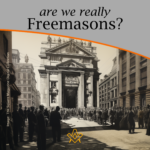 Maybe Freemasonry has opened its doors too wide. Perhaps some have not understood that the survival of Freemasonry in order to achieve its sublime purpose lies not in the number of members it has, but in their quality. Maybe we need less members and more Freemasons. Less men in Freemasonry and more Freemasonry in men. |
 What is ritual and why is it important? P1 Delve into the profound world of Freemasonry rituals and their significance. This insightful piece unravels the underlying importance of rituals, their impact on participants, and the transformative power they hold. Uncover why these centuries-old traditions remain integral to Masonic practice today. |
 Could Freemasonry be helpful for young men? Unravel the Masonic Brotherhood: Could Freemasonry be the antidote to modernity's challenges for young men? Dive in as we explore the Masonic world, its principles, camaraderie, and how its traditional rituals could help forge stronger identities in an increasingly complex world. |
 Discover the remarkable benefits of Lodge Meetings on your well-being. From fostering connections to combating stress, learn how these male-oriented gatherings offer an antidote to anger, hunger, isolation, and exhaustion. Dive into the power of shared experiences, understanding, and camaraderie. Your key to improved mental health awaits inside. |
 Tutorial for a Worshipful Master Unlock the Secrets to Leadership Mastery in our Worshipful Master's Tutorial! Brother Antonio Biella shares step-by-step guidance for Masonic Lodge leaders on honing their roles, duties, and future vision. Discover how to drive growth and engagement in your Lodge, setting ambitious goals and inspiring member participation. |
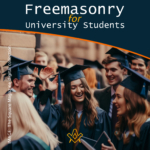 Freemasonry for University Students What are social skillset challenges facing students when they graduate from university ? |
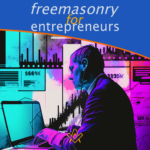 How the Core Values of Freemasonry; Brotherly Love, Relief and Truth Can Be Applied to Improve Productivity For Entrepreneurs |
 Why I became a Freemason: a personal journey of self-improvement Salik Tariq shares his reasons for becoming a Freemason – a journey of self-improvement, finding a community, and personal growth. |
 Freemasonry: Coming out of the Cloisters This paper examines the fundamental tensions on the lines of religion, gender and political ideology that exist in some jurisdictions of Freemasonry. It is on the first of these, religion, on which he makes an initial and exploratory focus. - by Gerald Reilly |
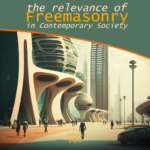 The Relevance of Freemasonry in Contemporary Society The role of Freemasonry in contemporary society is an indispensable one. Despite the challenges and misconceptions it faces, the organization remains steadfast in its humanitarian pursuits and commitment to personal growth and self-betterment. Through its efforts to evolve and adapt to the changing needs of its members and the world, Freemasonry continues to be a vital force in shaping a better future for all. |
 Has Freemasonry managed to revive and thrive after the darkness of the Pandemic? Robert Lomas gives us some (promising) insights. |
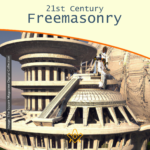 21st Century Freemasonry – a Sign of the Times? A recent article in The Times of London highlighted the dilemma 21st Freemasonry is facing. In this article one Master Mason shares his views of the strengths, and the challenges of modern Masonry. |
 A concept that is both based on our Freemasonic rituals and what we understand as teamwork. This article by Chris Batty examines why teamwork in the lodge is the network that binds us. |
 Lebanese Freemasonry has been both witness to and sometimes participants in turbulent events and forces, which shaped and influenced their world. |
 Is a Masonic Tradition Necessary? Dealing with Masonic tradition is a complex subject that requires careful analysis in order to reach a balanced point on the best etymological definition and the set of discourses and practices, which often end up being presented as such, without, however, presenting bases that support them, often serving only as a discourse that restricts and controls the masses. Fernando Rodrigues de Souza debates this complex subject. |
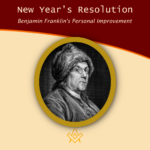 New Year's Resolution with Benjamin Franklin's Personal Improvement Are you ready for a new year's resolution challenge ? To accomplish his life’s goals, at 25 ( around 290 years ago ), Benjamin Franklin developed and committed himself to a personal improvement program that consisted of 13 virtues. You are invited to join me in practicing his daily routine for 2023. |
 The Alberta Masonic Higher Education Bursary Fund is to help the next generation of Albertans, our children and grandchildren, to obtain the education they need to lead successful lives and contribute to the welfare of mankind. As you can see from this little lesson of our history, education is truly a Masonic obligation. |
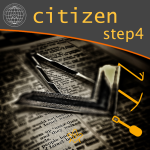 To be a Better Citizen of the World: Step 4 A value proposition for Pure Ancient Masonry as defined in terms of Citizenship; the allegories, symbolism and lessons are a blueprint for all Freemasons to be a better citizen of the world. |
 To be a Better Citizen of the World; Step 3 A value proposition for Pure Ancient Masonry as defined in terms of Citizenship; the allegories, symbolism and lessons are a blueprint for all Freemasons to be a better citizen of the world. |
 In connection with recent article about Freemasonry in the metaverse, we look at how an Egregore applies to Freemasonry in a digital world |
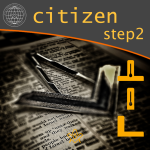 To be a Better Citizen of the World; Step 2 A value proposition for Pure Ancient Masonry as defined in terms of Citizenship; the allegories, symbolism and lessons are a blueprint for all Freemasons to be a better citizen of the world. |
 There are many brotherhoods in the world, and Freemasonry is one of the most significant and successful of them all. This article will be the focus two questions: the importance of brotherhood ? and is there room for improvement in Freemasonry? |
 Intergenerational relations in Masonry: challenges and possibilities Backed with scientific research, Professor Luiz Neto and Professor Alexandre Braune investigate the Intergenerational relations in Freemasonry and explores the challenges and opportunities. |
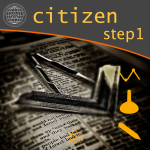 To be a Better Citizen of the World; Step 1 A value proposition for Pure Ancient Masonry as defined in terms of Citizenship; the allegories, symbolism and lessons are a blueprint for all Freemasons to be a better citizen of the world. |
 The Masonic Temple is a platform where both Freemasons and non-Masons, enthusiasts of real art and spiritual growth, connect to the new world of the metaverse. A Freemasonry in the metaverse project, based regular freemasonry principles. |
 Opportunity to fix the Sussex fudge Is there a value proposition for members, that under English Constitution Freemasonry, we have a 4 part offering; Entered Apprentice, Fellowcraft , Master Mason and Companion, conducted in a single craft lodge ? |
 Value Proposition of Freemasonry In addressing declining lodge membership and lack of attendance, we need to assess the value it offers to members. What is value, and what does it mean to you? |
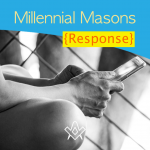 What is a 'Millennial' and what do they want from Freemasonry? You'll be surprised at the answers. |
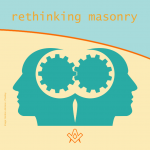 Let us help answer a fundamental question, from a confused newly raised brother asking “What does it all mean and where do I go from here?” |
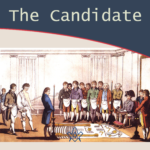 Written in 1930, much of the advice is still relevant today - although some may provoke further thought or debate! |
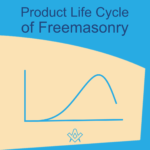 Product Life Cycle of Freemasonry An inconvenient truth about the product life cycle of Freemasonry |
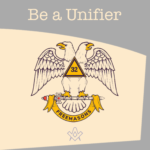 Freemasonry is local. This is where we need to start. We start with our Facebook friends, our neighbours, our colleagues, our lodges… |
 Freemasonry in the time of pandemic The Rule of Six. Localised lockdowns. Second wave? What do we do now?! The answer is simple - engage with members, promote Masonic education and get thinking outside the lodge. |
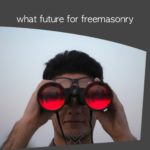 The current functioning of the Masonic movement has some positive aspects and others that are blatantly backward and counterproductive. |
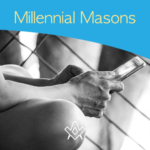 What is a 'Millennial' and what do they want from Freemasonry? You'll be surprised at the answers. |
 How to improve your Lodge Membership Marketing Program. |
 The Anti-Social Impact of Social Media The 'dark side' of social media and its negative effect on our mental health |
 If Freemasonry cannot meet, is this an opportunity to make a change to how we do things? |
 Has your lodge accepted an unknown candidate from the internet? Third in a three-part series looking at the process to accepting candidates via the internet |
 Is the brother of a brother a brother ? Rights to visit - recognition and regularity re-evaluated. |
 The second article in the Unknown Candidate series - Outlining the social media marketing process to attract the unknown candidate to make that first enquiry |
 Ask a random Freemason the purpose of Freemasonry and the likely response will be to “make good men, better”. Research undertaken by James Justin Davis Pennsylvania Academy of Masonic Knowledge. |
 Has your lodge accepted an unknown candidate from the internet? First in a three-part series looking at the process to accepting candidates via the internet |
 Mental Health - Raising its awareness and how we as Freemasons throughout the entire UK can help our fellow brethren and their families when they need it. |
 Share one thought why freemasonry is relevant today - Open question posted on Facebook with a very wide range of responses from Brethren across the globe |
 The Tipping Point of Freemasonry Why do brothers lose interest in Freemasonry and what can we do to get that spark back? At what moment did our own thoughts begin to waver? |
masonic knowledge
to be a better citizen of the world
share the square with two brothers

click image to open email app on mobile device


